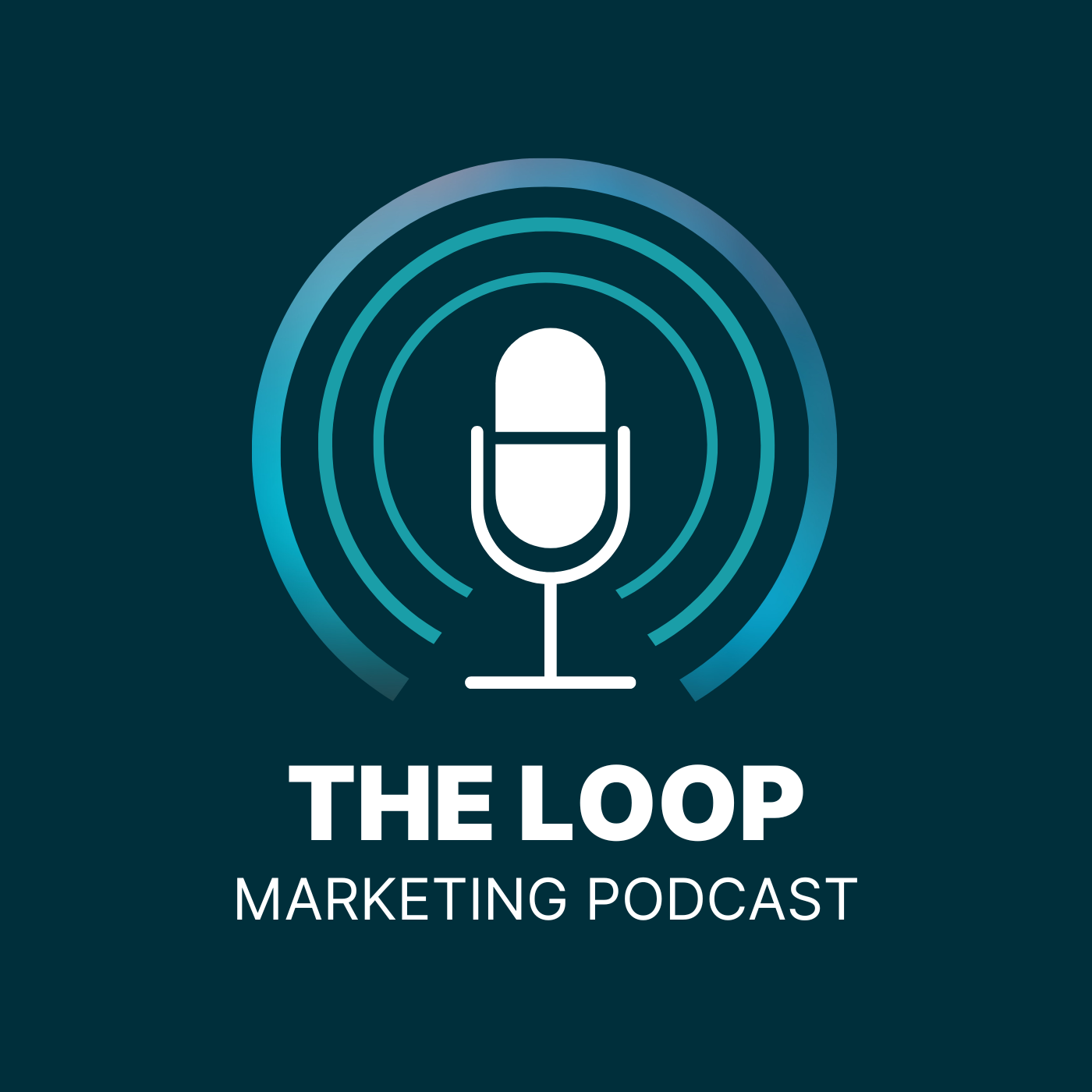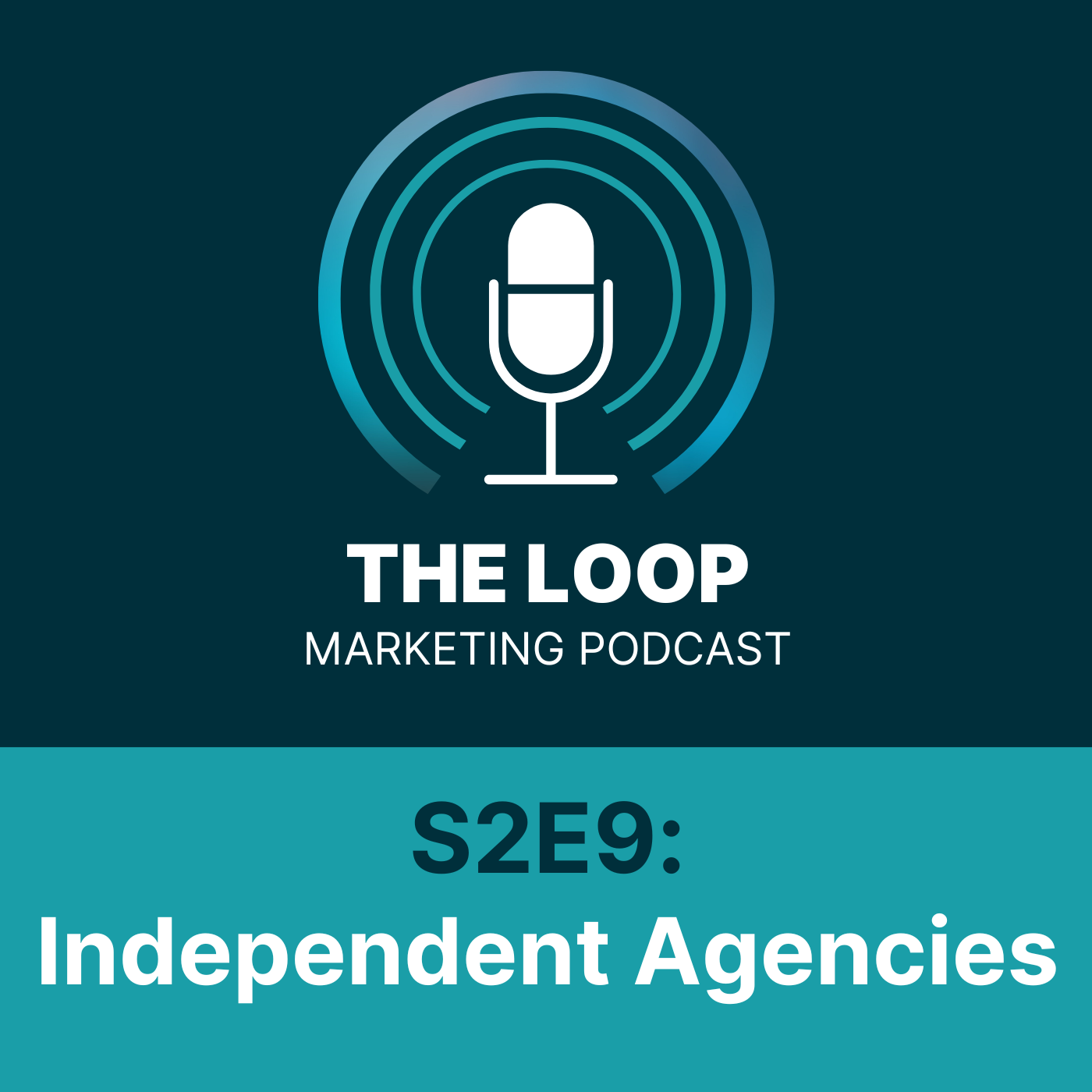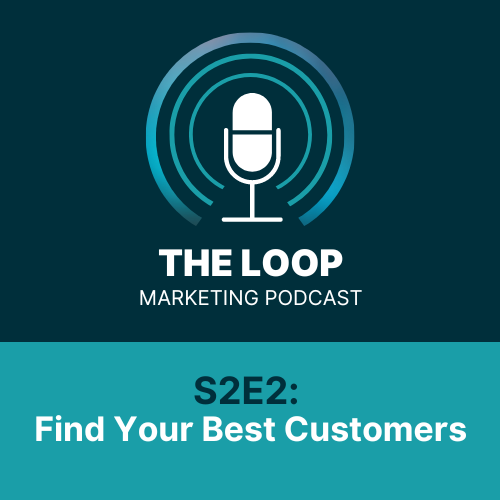Episode Transcript
0:00:05 Hello and welcome to The Loop Marketing Podcast. I'm your host Elise Stieferman, Director of Marketing at Coegi. Today we're joined by Coegi's President, Sean Cotton and Vice President of Marketing, Ryan Green. Let's get started!
00:00:19 Today's Loop episode is all about the cookieless future. Obviously, it's a topic that's top of mind for marketers reading about it every day and knowing that it's coming up in 2023. So, I'd like to start off by talking about the primary effects that the cookie deprecation is going to have on marketers, and how it's going to change brands' perspectives on digital. So, Sean, would you like to kick it off?
Of course. Well, as you said, it's top of mind for many marketers. If it's not, it should be, because the vast majority of digital advertising today does leverage third party cookie information. There's limited scale to customers that we already have a relationship with or maybe our partners have a relationship with. That's our most reliable data. But scaling that out for prospecting audiences today in digital advertising usually relies on this third party information that's gathered from cookies and the browsers. So one of the primary impacts will be a diminished scale of third party audiences and also reliability as to really knowing that this particular user is in-market based on their browsing habits, shopping activities, or other things they've done that they fall into this bucket. When those large audiences go away, some marketers, if they don't have an alternative, will really struggle to market at scale in an online environment. The other area that we foresee the impact is in measurement of results for those campaigns. We'll still be able to measure impressions and clicks and a lot of the vanity metrics, but measuring actions that were taken after an ad view or an ad click, and being able to track that back with any type of latency, is going to be severely diminished as well.
As you said, if brands haven't been thinking about how to move and continue to be able to perform automated marketing without cookies, they're certainly behind. You know, cookies were kind of the language of programmatic and that language is being deprecated. That being taken away is both a challenge and an opportunity. I think it'll be very interesting to see brands that have really relied on that model of data react when they don't have it. What are the effects gonna be to the bottom line? How effective were some of the attribution models that they were using? Maybe they were relying on a last click or a last impression. It could be a wake up call for certain brands to say, “Hey, maybe the way we were measuring things wasn't working before, maybe giving Facebook (that used a lot of cookie data) a blank check and just letting the algorithm do its thing was producing results that looked good within the platform, but maybe weren't affecting the bottom line as much.” So what I always see, while there's certainly challenges from a targeting and a measurement perspective, there are going to be opportunities for savvy brands and agencies that are able to represent those brands well, to go into 2023, maybe with a different mindset, maybe with a different tech stack, to be able to continue doing what the last 15 years of automation and digital marketing has allowed us to scale with, but be able to do it in a more intelligent, accurate way.
00:04:05 So then building off of that, obviously digital marketers in particular have had a lot of pressure to prove ROAS, to prove the efficacy of your dollars, with attribution being less of the conversation in a cookieless future. What should marketers be doing to analyze whether their campaigns are actually successful? And then, how should they evolve how they view success?
Well, it starts with putting in place a measurement strategy before we even launch our marketing campaigns. What are the business results that we're going to be tracking and how are we going to tie those back to what we have in-market at any given time? And, what are the key metrics that we will look at as signals that indicate that we are impacting those business results by our media? When we first started discussing the cookieless future a few years ago, we would make the statement "it's time for the real marketers to stand up" because it takes away that easy button that we've talked about before of just these ready-made audiences, placing some pixels, and directly assigning actions to the audiences. As that goes away, it's really kind of a return to relying on marketing strategy and business strategy and having an in-depth understanding of who our consumers are, where they spend their time, what their triggers are - whether it's psychographics or other behavioral attributes. And creating media plans around that that build awareness, consideration and intent - the old fashioned marketing funnel that still works.The advantage we have now is the programmatic technology that we've used for the last 15 years can be applied to do that faster and to be more nimble in making optimizations as we analyze the business results and to shift our media in real time to get the greatest ROAS that you're speaking of, as opposed to running a quarter and looking backwards and saying, well, this seemed to work. And that seemed to work for the next quarter. We'll do this. And then waiting another three months before we make adjustments. We'll be able to combine the best of both worlds - the programmatic technology that we've become skilled at over the last 15 years and those tried and true marketing principles.
You know, I think you have to take a step back and say, how were we measuring ROAS over the past couple of years? And was that really accurate? Because what's happening along with the deprecation of the cookie is also an increase in walled gardens and there's already a lot less interoperability of sharing of data, in particular, measurement data. So, if an advertiser was able to say, "Hey, on Facebook, I was getting an eight to one ROI two years ago.” Was that really accurate? Did that really tie to growth in sales? So maybe going back and admitting that maybe we didn't measure it correctly. When we did have a little bit more perfect data, or when we had more transparency with the data sets that we had, going back and really making a good audit analysis of what was accurate and what needed to have work, that's going to help put forth the vision for what that ROAS analysis is going to look like because it will be different. What old is new again. You know, going back to the marketing funnel, that's worked for a while, looking at media mix modeling that I think we'll touch on later in this episode, as well could be things that are gonna blend. Some of the more manual processes that you look at quarterly with the automation that we've become skilled at over the last decade to be able to fuse both of those worlds together and ultimately bring a better, more accurate, reliable model and product for brands to be able to go to their C-suite, be able to go to their board of directors and have faith in the analysis that they're bringing forth.
And I think one of the areas where we'll see this immediately when the deprecation of cookies goes into full effect is in retargeting. Right now, many marketers, whether it's brand or certainly direct response, want to pour as much money as possible into retargeting because of the ROI numbers of spend versus tracked conversions. Whereas in reality, a lot of those conversions are the result of people who have already made their decision as they've been nurtured through the consumer purchase journey, They've already made their decision and they're served in ad or maybe they do a brand name search in order to complete that transaction, but they've already made up their mind. So when that sort of attribution is not available to that tactic of retargeting, it will seem like, well retargeting is not performing as well as it used to before and we'll have to adjust to understand that it's performing the same as it was before. Maybe we were putting too much budget there before and we needed to invest more in the middle of the funnel to drive top line sales versus trying to grab credit for conversions that may have already have taken place.
You know, a similar thing with third party data. I was talking to an industry friend of mine and he was mentioning that within one third party data segment, it's really only maybe 2 or 3 percent of that segment that actually has a propensity to buy that isn't just fulfilling, latent demand, but are actually generating demand for a brand. So I think once those cookies go away, you may see other methods that brands try to really find that audience that has a high propensity to buy in, to become new customers and not just kind of preach to the converted in the way that a heavy retargeting campaign does that looks good in platform, but doesn't actually generate new users, new conversions, new sales, or new leads. So taking a different shift, I think in the way that you think about data, not just as one segment, but you know, being able to find the golden nuggets within those segments, finding that signal and the noise, I think could be easier if you take the right lens and right approach to measuring what matters and to programmatic buying,
00:11:16 I think that's a really good point, Ryan, and something that has been top of mind for me, is thinking about how does an audience first approach work in a cookieless future and, you know, thinking about how publishers are pivoting and having identity solutions, thinking about how retail media has really come to light because of the rich data that they have available. So for brands that maybe don't have first party data readily available, how should they be looking at audience targeting and determining those signals that are showing that intent?
Well, that's a great question because we talk about the diminishing of these ready made audiences. It doesn't mean that these audiences won't still exist in some database, such as retail media and so forth. And so, developing partnerships now and relationships now with those large retailers or those technology companies that enable us still to identify audiences and to market to them is really kind of table stakes in preparing for the cookieless future. You know, it's more efficient if we own the data ourself, right? Which is why we always talk about building up first party data. There is a cost associated with targeting. Just like there is now with third party cookies, right? An impression with no data whatsoever is much cheaper than one that has data layered on top of it. So I think a test and learn strategy is probably the way to go about that and understanding what partners, whether it's retail media, whether it's data and technology companies, and so forth have audiences to where the premium that we have to pay to leverage those justifies the business results that we see from them and having our measurement strategy in place to do that test and learn approach to implement it, will allow us to make some decisions fairly quickly, hopefully, in that environment,
There's a couple advantages with retail media. One is that the retailers are getting privacy compliant data, right? They are because they're having a transaction and a relationship with the user. They are doing all the T’s and C’s work. That's necessary to make sure that you're being compliant in a privacy world as advertisers try to create their own first party data. They need to be very cognizant of that too, that they're adhering to regulation in the way that they're collecting data. So in some ways, if brands are using second party data, they're paying a surcharge for somebody else to make sure that data is compliant. The other big opportunity too, is that you do have a window of opportunity to see ROAS within at least one environment when you're using a retail media partner. Because a lot of times they're able to stitch together point of sale data that's happening at a brick and mortar store alongside an eCommerce, or buy online pickup in store, any of those trends that you're seeing. You are able to, to assign attribution in that specific environment. So if you're working with Walmart, you're able to see from impression to conversion all the way through, not every touchpoint, obviously, because consumers aren't only on Walmart.com all day, but you're able to get some of the best of both worlds that way. So I'm really bullish on retail media, not just for CPG brands, but for a number of adjacent, brands that are looking for propensity or looking for other data sets that aren't just about the demographics of an audience that are about past purchase behaviors that may be predictive of who's going to purchase your brand. I think there's a lot of ways that smart digital marketers can leverage the retail networks, especially with all the challenges around cookieless and privacy and regulation that check a lot of the boxes that are gonna allow us to have that transparency and addressability that may be lacking on the open exchange.
00:15:59 All right. Well thank you Sean. Thank you Ryan. I think that was a really valuable conversation and an important one. And I look forward to speaking to you in the future.
00:16:13 Thank you for listening. Coegi is an industry leading performance marketing agency based in the Midwest. We've learned a lot since our founding in 2014 and started The Loop Marketing Podcast to share some of our hot takes and marketing trends we're following, best practices we've discovered, and actionable tips for improving your digital strategy. We'll see you next time.


